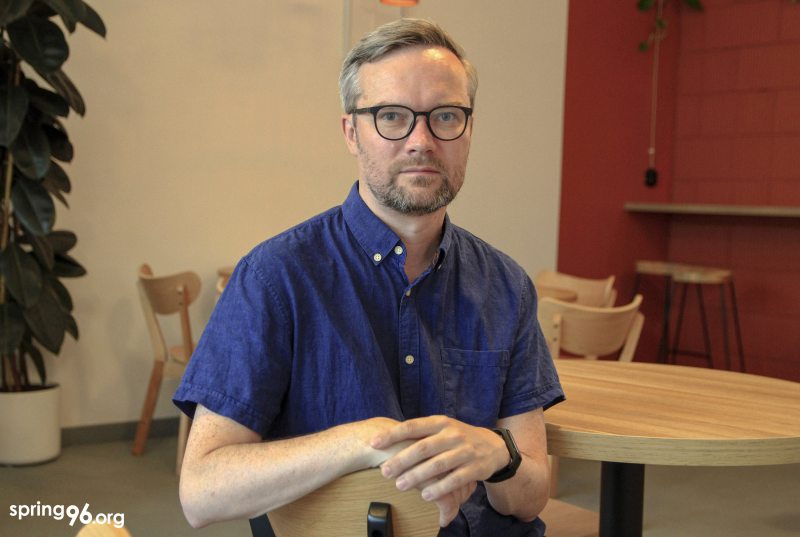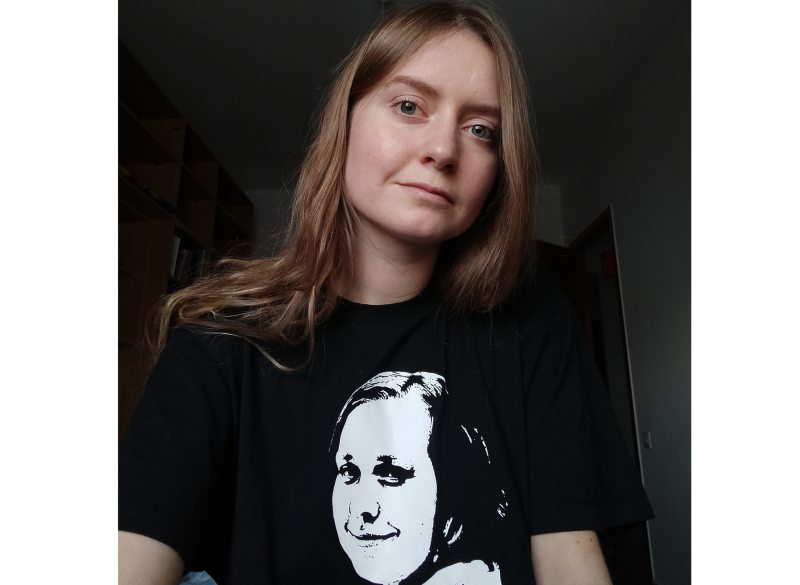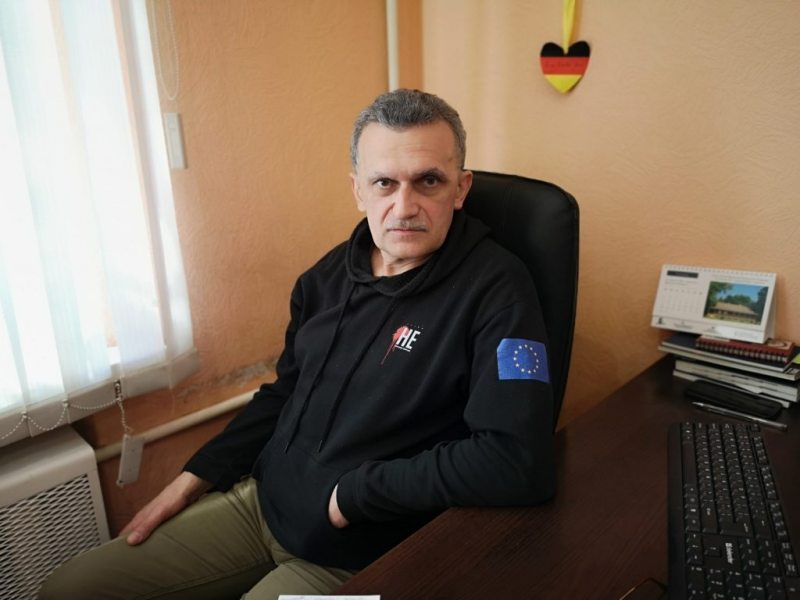Five reasons why concept of human rights still works

Nowadays, believing in the concept of human rights has become increasingly challenging. While international institutions continue to “express concern”, for many, this phrase has become synonymous with the perceived helplessness of human rights organizations in the face of crimes committed by authorities of various countries. Activists from the Human Rights Center Viasna shed light on why, in their perspective, the concept of human rights endures, what gives them strength and motivation to defend human rights, and what means of promoting human rights values they find most effective.
1. Guiding values
A profound understanding of the human rights system forms the basis for moral values and enables individuals to establish the societal rules by which everyone can lead a better life. Human rights emphasize the importance of every human being and teach respect for others. In a paradigm where each person with their universe is at the center of everything, human and personal dignity takes the forefront among values. This is what makes the concept of guiding values crucial and applicable for both individuals and society as a whole. Human rights education acts as a kind of inoculation, preventing crimes against humanity, repression, and war.

“Human rights embody the principles of humanism. They help people live in harmony with each other.”
Kanstantsin Staradubets, Viasna human rights activist, international relations, advocacy.
As per the annual survey by Freedom House, global freedom has been on a continuous decline for the 17th consecutive year, with only 84 out of 195 countries considered free. Democracy and respect for human rights are integral factors that directly influence social, political, and economic advancement. People live better and longer in democracies. They are genuinely happier in places where freedoms and rights are upheld. This is something worth living and working for.
Human rights embody the principles of humanism. They help people live in harmony with each other. Human rights help us become more compassionate and open. For me, these are the values that underpin everyday communication with people and the state. Around the world, and particularly in nations emerging from the grip of autocrats, it is crucial to consistently and systematically demonstrate to people the advantages of human rights and a democratic framework. The effectiveness of this process hinges on the incorporation of human rights values into the education system. Civil society is instrumental in this regard. Likewise, the authorities of post-totalitarian Belarus should ensure the active involvement of human rights defenders in the transition to a nationwide mindset grounded in human rights.
2. Documenting human rights violations
A significant aspect of the work of human rights defenders today involves documenting numerous instances of human rights violations. One needs to comprehend the criteria for torture and inhumane treatment and meticulously document such cases to be able to assert that the state engages in torture. One must be acquainted with the mechanisms for conducting transparent elections and diligently observe them to identify and document any infringements to assert that a presidential election was conducted with violations. One needs to not only comprehend the underlying concepts but also meticulously document all cases to precisely gauge the scale of repression in order to claim that individuals in the country are deprived of freedom of speech and peaceful assembly and that their persecution is politically motivated.
“I should not be afraid of my state. Furthermore, I have rights within it and am a critically important actor in this very state.”
Liubou Lanina, Viasna human rights activist, volunteer division.

Human rights are akin to basics that allow you to express your feelings about justice and dignity or use them in court if needed. The concept of human rights implies that I should not be afraid of my state; furthermore, I have rights within it and am a critically important actor in this very state. Given that international instruments enshrining human rights have arisen in response to states’ human rights violations, I find significant value in this concept as a system that imparts knowledge about what freedoms and rights entail and how to utilize and safeguard them. The concept of human rights appears to me as not only a legal matter but also a question of values that should be taught in daycare centers, workplaces, and universities. I would like for people to learn about human rights and genuinely believe that this knowledge can improve lives and help foster a sense of inner strength. I see my role as advocating for human rights and promoting approaches grounded in them.
3. Remembering everything
At a time marked by numerous violations of even the most fundamental human rights, such as freedom from torture and slavery, it is easy to overlook those that may appear less foundational by comparison. But the catalogue of human rights and declarations signed by states in various fields are most useful in providing yardsticks for what is considered standard in humane treatment, helping us understand what equally important topics are not given much attention at these times. Is the right to an adequate standard of living realized? And what about the right to participate in cultural life? Are the issues of individuals with disabilities and women facing domestic violence receiving adequate attention? Against the backdrop of ongoing political repression, numerous human rights-related issues, though seemingly less important, remain pressing and demand attention and resolution.

“Respect for every individual is essential, irrespective of gender, age, nationality, or skin color.”
Alena Masliukova, human rights activist.
Human rights violations persist across the globe. However, this does not mean that the concept of human rights doesn’t work. While recognizing the fact that any state worldwide can infringe upon people’s rights, it is crucial to grasp another fundamental aspect: the systematic and consistent fight for human rights is imperative. We need to construct a state, a political regime, and a civil society where human rights take on the utmost significance.
My dad often talked with me on various subjects during my childhood, topics that I didn’t necessarily interpret as an early lesson in human rights. Those were conversations about what is good and what is bad. And those discussions stayed with me for the rest of my life. Only as an adult did I understand the significance of these talks with my dad, the core idea being that every person deserves respect, regardless of gender, age, nationality, or skin color. In my opinion, the most effective approach to promoting the concept of human rights has been and will be the education of individuals in an environment that respects human rights, fostering ongoing learning throughout one’s life. Similarly effective is the popularization of human rights through mass media and showcasing the lives and work of eminent human rights advocates such as Eleanor Roosevelt, Nelson Mandela, and others. And for us Belarusians, a compelling example is Ales Bialiatski, Valiantsin Stefanovic, Marfa Rabkova, Uladzimir Labkovich, and all political prisoners who have had the courage and strength to defend their rights, even while behind bars. I’m referring to the incarceration of notable Belarusian politicians, human rights defenders, and ordinary citizens alike.
4. Public work
Thanks to the efforts of human rights defenders, instances of human rights violations are being brought to the attention of society and international institutions. This encompasses not only reports on court proceedings and stories about political prisoners published by journalists but also includes reviews of human rights violations, monitoring conditions in places of detention, notifying special rapporteurs, and participating in various events. Human rights activists raise awareness about their country’s issues at different levels, ensuring that people are not left alone with their problems. Their advocacy compels the world to take notice of numerous human rights violations and react, even if the response is not always as prompt as desired.
“I envision the concept of human rights as a litmus test that society can apply to a situation to understand whether what is happening is normal.”
Sviatlana, lawyer and human rights defender.

Human rights are foundational principles designed to remind people of the importance of each individual in this vast world and to safeguard the dignity of every human being.
I see consistent promotion of values as the most effective approach. Not everyone may be interested even in basic education in the sphere of human rights, but it is crucial to instill fundamental principles of respect and acceptance for each individual. The principles of human rights are simple, yet adhering to them may necessitate challenging decisions at times. Hence, for human rights to function effectively, difficult decisions must be made by the state, civil society organizations, and the international community. We need to be involved in this decision-making process to ensure that the needs of vulnerable social groups or ourselves are not forgotten. I believe that while legal processes may not necessarily bring about direct outcomes, they still have a cumulative effect over time.
5. Holding perpetrators accountable
Why do we need to document numerous human rights violations? This is because, unlike the Belarusian legal system, international laws operate under the presumption of innocence. Therefore, evidence of guilt must be provided to hold all perpetrators accountable for their crimes in line with international law norms. Thus, human rights defenders worldwide are now making a significant contribution to future Nuremberg trials so that no criminal can escape responsibility.

“Perhaps, it was the world wars wherein humanity and goodness triumphed over the forces of darkness.”
Siarzhuk Sys, human rights defender and journalist.
For instance, the League of Nations was established in 1919, following the conclusion of World War I. After the end of World War II, the world was ready for the adoption of the Universal Declaration of Human Rights, which took place in 1948. And this is understandable: the global community that had endured the violence and dire years of wars became significantly more prudent and humane. Unfortunately, historical lessons are sometimes forgotten. We face new wars and endure tyrannies… including the one in Belarus. I believe that all of this is temporary: there is only one pathway to being a “homo sapiens”. And this path lies in the regular, routine defence of the rights dictated by life and civilization itself.
It’s essential to remember that the last human rights crisis after World War II led to some measures that prompted temporary stabilization of the situation in the world. The nations committed to following rules that ensured relative peace for nearly a century. Maybe the ongoing crisis has highlighted the problematic aspects of the human rights concept, paving the way for future improvements to the system and averting new conflicts. Such improvements can also help each individual, ensuring that they are not left to face their troubles alone.